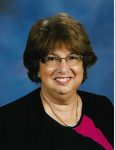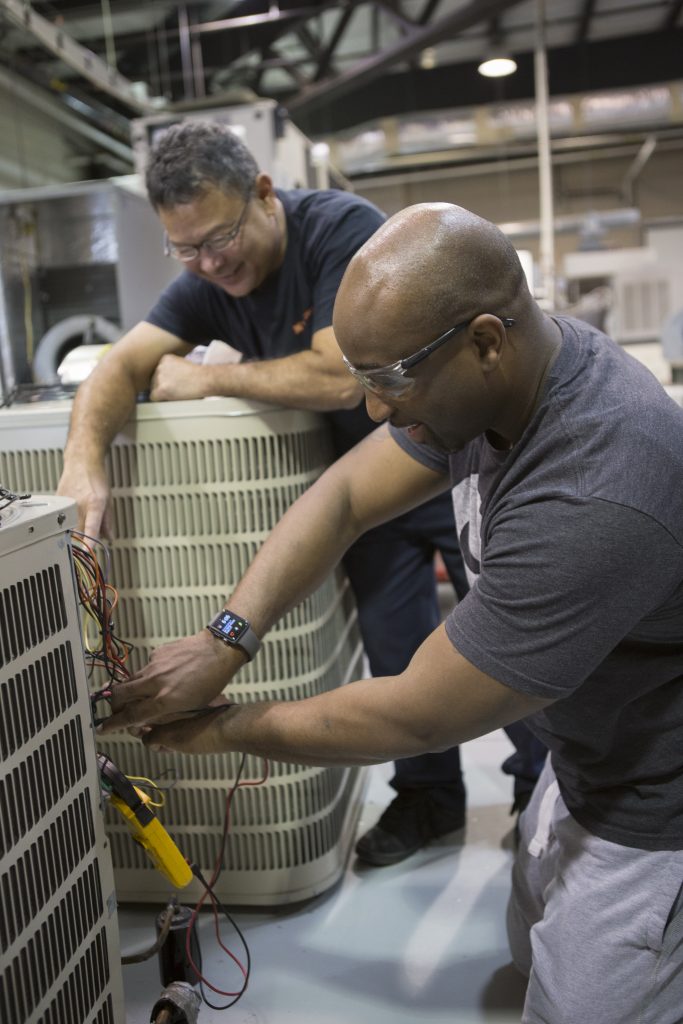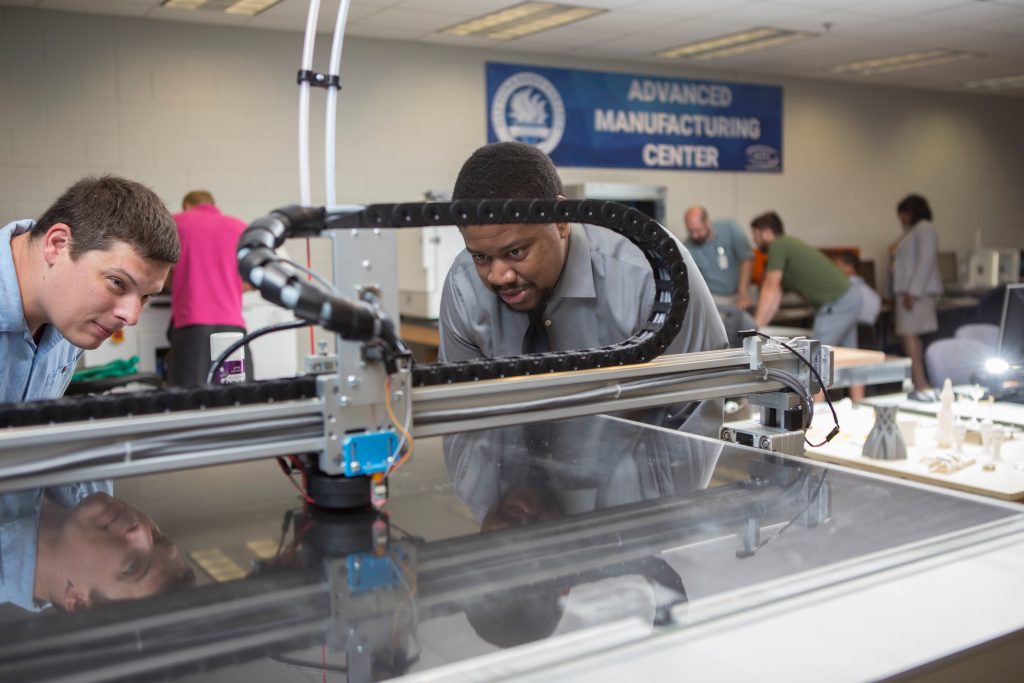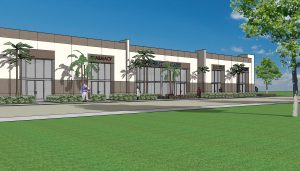Area Community Colleges Adapt for Student and Business Success

Florida has made higher education a priority, earning accolades as the No. 1 state in the nation over the past few years. Launching the “Get There Florida” initiative in 2020, supporting enrollment in the state’s career and technical education programs, colleges have seen an uptick in funding and the welcome addition of 54 new industry certifications available for funding, broadening the opportunities for students across the board in high-demand industries. Serving as a catalyst, employees and employers are maximizing the opportunity to upskill through higher education and trade certifications.
Fast-Track to the Workforce
Training students from the ground up, First Coast Technical College in St. Augustine, Florida, offers a variety of full-time Career and Technical Education (CTE) programs culled from the region’s high-demand jobs list. Ready to take a student from novice to industry-certified in less than 14 months, graduating students waste little time and are prepared for immediate employment upon completion of their studies, according to College Advancement Coordinator Arleen Dennison.

“If you compare a 2-4 year college program with FCTC’s, our students only study their major,” she said.
The instructors are industry professionals allowing First Coast Technical College (FCTC) the flexibility to offer additional programming options to meet the needs of regional businesses.
“We also provide short-term industry programs so employers can design their own syllabus to upskill their existing employees,” said Dennison.
“FCTC currently offers this type of continuing workforce education in the aerospace, public safety, transportation, hospitality and agriculture industries. Some students use their training to progress on to a degree program or increase their earning power,” she said.

Headquartered in Daytona Beach, Florida, Frank Mercer heads up Daytona State’s College of Business, Engineering & Technology. Recently tapped by a local business to upskill their workers, Mercer said it’s the collaboration among like-minded resource partners that ensures the region can quickly adapt to an industry’s evolving needs.

“One recent example was with a company training a group of employees in a specialized micro-welding process,” shared Mercer. “We designed and delivered the training which CareerSource Flagler/Volusia funded, and the company matched the funding by purchasing the equipment and materials.”
CTE programming takes place through Mary Karl School of Workforce & Continuing Education and includes a number of high-skill, high-wage programs such as welding technology, automotive service technology, building trades and construction design, CNC machining and HVAC technology. Daytona State College (DSC) also launched Florida’s first chapter of FAME (Federation for Advanced Manufacturing Education), an innovative partnership that matches students enrolled in the A.S. Engineering Technology program with local manufacturing companies for a combination of classroom and on-the-job training, shared Mercer.
Skills – Hard or Soft, You Need Them Both
In addition to hands-on training, employers and employees are fine-tuning their soft skills, said Joel Abo, Director of Business Education & Corporate Training for St. Johns River State College (SJRSC).
“A common theme amongst small business owners has to do with the lack of basic soft skills and professionalism displayed from younger employees. Oftentimes the basic necessities of success like punctuality and polished communication skills are greatly lacking,” shared Abo.
“Understandably, these skills can be difficult to acquire without work experience. However, we have capstone courses in several of our Workforce Programs where students may earn a two-year degree that focuses on job skills and experiential learning through internships.”
Businesses that seek valuable, resourceful and innovative employees will need to look beyond laser-focused skill sets and seek individuals who are willing to learn and eager to prove themselves as contributors, said DSC’s Frank Mercer.
“In order to find these individuals who will add value to the company culture through their soft skills, intentional hiring practices are required. Entrepreneurial organizations need to provide the tools staff need to succeed,” he said.
“One way Daytona State College is preparing our students for that role is with our entrepreneurial mindset education program. This innovative instruction focuses on helping students identify and develop an entrepreneurial mindset that cultivates a mental attitude or inclination to discover, evaluate, assess and capitalize on opportunities. These skills assist in guiding an individual to start their own business and can be applied strategically within an organization of any size.”

Be Nimble: Remote Learning & the Workforce
“One of the basic principles of economics is quite simple…time is money. It is the one commodity that, once lost, can never be returned,” said SJRSC’s Joel Abo.

Abo acknowledges educators are in a race against time to provide adequate programs and training that will accommodate and sustain their students’ careers in the future.
“This is why we review the Regional Demand Occupation List annually and work with our local business to make sure we provide workforce programs to address the needs of the continuously evolving workforce,” he said.
“Employees are looking for training that is quick and affordable. We provide flexible classes and training during the day, evening and online to meet their busy schedules. We strive to provide the best education and training to our diverse student population because we know the value and importance of attaining these skills to succeed in the workplace.”
Working closely with students and employers at Daytona State College, Mercer agrees.
“At the end of the day, it is all about transferring learning from the “classroom” – whatever form it takes – to the workplace. Like business, the classroom has been forced to adapt quickly to changing conditions and requirements. Remote learning, blended learning, flexible learning, hybrid learning, virtual learning are all common terms today,” he said.
With online enrollment increasing over the past two decades, Mercer said 90.5% of Daytona State College students enrolled in at least one Distance Education class in 2020/21, compared to 78.4% in the previous year.
Looking ahead, he forecasts a continued increase in adult online student participation as people become acclimated to the virtual learning classroom and, in turn, develop increased digital literacy skills that translate into essential skills for the modern workplace.
“State colleges are uniquely suited to help businesses find, train and keep well-qualified applicants, and Daytona State College offers the region’s premier training and post-secondary education,” said Mercer.








